Iran Sentences Six Arab Political Prisoners To Death: Rights Group
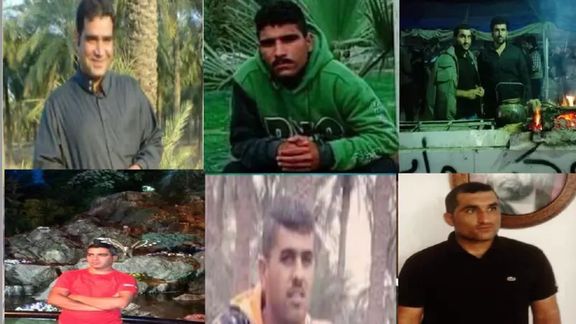
A human rights organization in Iran reports that a revolutionary court has sentenced six Arab political prisoners to death in the southern city of Ahvaz.

A human rights organization in Iran reports that a revolutionary court has sentenced six Arab political prisoners to death in the southern city of Ahvaz.
According to Ahvaz Human Rights Organization, the prisoners are identified as Ali Majdam, Moin Khanfari, Mohammad Reza Moghadam, Salem Mousavi, Adnan Mousavi and Habib Edris.
Six other Arab citizens have also been sentenced to long prison terms between 5 to 35 years, the report added.
The death sentences are issued while the Iranian authorities have released dozens of political prisoners and protesters in recent days, claiming an amnesty was issued for thousands of detainees.
Meanwhile, the Islamic Republic keeps putting pressure on activists and arrests continue. Hengaw Kurdish-Iranian human rights monitoring group reported that Arian Koukhaizadeh, an 18-year-old detained youth from the southwestern city of Ilam, went on a hunger strike by sewing his lips in protest at inattention to his case.
Narges Mansouri, one of the signatories of a letter calling for Supreme Leader Ali Khamenei's resignation, also announced in an audio file shared with Iran International that since January 29, in spite of acute illness, she began a hunger strike in protest to the inhumane behavior of the Islamic Republic.
Meanwhile, according to information received by Iran International, security agents are putting pressure on political activists, who signed a statement in support of Green Movement leader Mir-Hossein Mousavi’s call for a new constitution, to rescind their signatures.
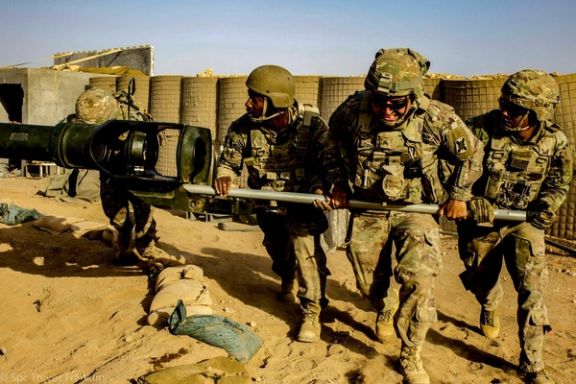
The United States Central Command (CENTCOM) says an Iranian-made drone was shot down by US forces near a base in northeastern Syria.
CENTCOM announced on its official Twitter account Wednesday that the drone intended to carry out a reconnaissance mission over the Conoco base in northeastern Syria near the border with Iraq.
The targeted drone was identified and shot down on Tuesday afternoon local time.
CENTCOM did not mention in its tweet which force, or group controlled the drone, only emphasizing that it was "Iranian-manufactured".
Several hundred US soldiers are stationed in the north and east of Syria as part of the international coalition against the ISIS. The exact number of these soldiers is confidential.
In recent years, bases where coalition troops are stationed have been sporadically targeted by rockets or drones.
The Conoco base in the northeast of the Arab country is named after the American company that was responsible for the discovery and construction of a gas filed station in this region.
This comes as the use of Iranian drones in Russia's war on Ukraine is of particular concern to the US and its European allies and has had a negative impact on relations between the Islamic Republic and European powers.
In this regard, officials of the US Defense Intelligence Agency on Tuesday presented new evidence of the supply of Iranian drones to Russia and indirect involvement of the Islamic Republic in the war in Ukraine.
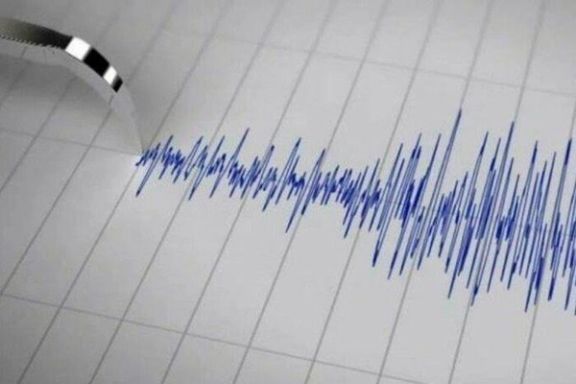
Iranian officials say there are 166,000 hectares of worn-out structures across the country which means a major earthquake like in Turkey and Syria might result in “hundreds of thousands of deaths.”
Farzaneh Sadegh Malvajerd, a Deputy at the Ministry of Roads and Urban Development announced Tuesday that about 1.4 million unstable units are built in urban parts of these areas.
Earlier, officials had estimated that the total area of worn-out and ineffective structures in Iran's metropolises is more than 166,000 hectares, with a total of 22,500,000 people living there.
Many of these areas are located on active earthquake faults.
In January, Mehdi Pirhadi, a member of Tehran Council also emphasized the need to renovate these buildings in Tehran to deal with earthquakes, warning that over 7 magnitude quakes could lead to hundreds of thousands of deaths.
Some experts had predicted that at least one and a half million people would die in case of an earthquake with a magnitude of 7 in Tehran.
However, it is not only the capital that is facing such a potential risk. There are active faults from Hamedan in west to Gilan in north that may cause a deadly earthquake at any moment.
Iran is crisscrossed by major geological fault lines and is one of the most earthquake-prone countries in the world because it is located where the Arabian, Indian, and Eurasian tectonic plates meet.
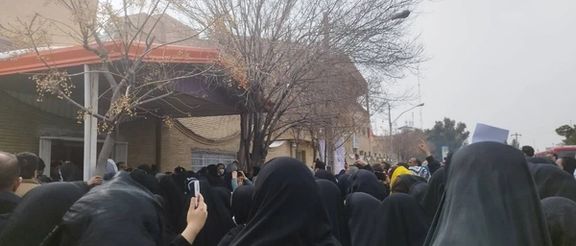
Family members of schoolgirls who have shown symptoms of a mysterious poisoning protested Tuesday outside the office of the governor of the religious city of Qom.
Around 200 students and at least one teacher in 12 different girls’ schools have reported symptoms such as nausea, headaches, coughing, difficulty breathing, heart palpitations, and lethargy since November 30 when 18 students of a secondary school fell ill with similar symptoms. Two weeks later 51 students fell ill in the same school again.
The education department had to close all schools in Qom for two days last week after several other schools were affected, causing a public scare. When students returned Sunday after the weekend and a public holiday Saturday, 37 girls in three different schools fell ill again.
In a commentary Tuesday published by Qom News, Nafiseh Moradi, an Islamic studies researcher at Tehran’s Al-Zahra University, speculated that ultra-religious groups with beliefs similar to those of the Taliban in Afghanistan may be behind the mysterious poisonings.
Moradi said the Taliban’s ban on girls’ education may have inspired the ultra-religious in Qom to carry out attacks on schools for girls to instill fear in students and their families with the ultimate aim of keeping them at home. She advised the authorities to hold classes online until the perpetrators of these terrorist attacks are identified.
Some of the students have had to be hospitalized for up to a week due to the severeness of their symptoms but most others were released within hours. In some cases, symptoms have lasted for weeks.
“We don’t want unsafe schools!”, “Schools must be secured,” “Answer us Mr. Governor!”, hundreds of protesters chanted while also calling the governor “scoundrel” for failing to investigate and address the poisonings in several girls schools.
The city of Qom with a population of over 1.2 million is home to most of Iran's religious seminaries and the popular shrine of Masoumeh, sister of Imam Reza, the eighth imam who is buried in Mashhad.
“You must ensure the safety of our children,” one of the parents shouts in a video posted on social media while others cheer. He says his solution to the problem is not sending his children to school anymore.
So far, authorities have not found the cause of the mysterious illness. Some of the victims have reported falling ill after an aroma, resembling tangerines, filled the air in the classrooms.
Deputy head of Qom Medical Sciences University, Dr. Majid Mohebbi, told the Revolutionary Guards linked Tasnim news agency Monday that MRI and other tests carried out on the affected students all came out normal, and nothing was detected in samples taken from the students and the classrooms. He also stressed that the cause of the illness could not be carbon monoxide poisoning from the heating systems.
Tasnim and other state media refrain from mentioning that the mysterious poisonings happen only in girls’ schools, but many believe it may be intentional targeting of female students. According to Qom News, authorities have been trying to hush the media reporting of the incidents and their cause.
Mojtaba Zolnuri, the representative of Qom in the parliament, has said that there is no doubt that the poisonings is intentional and “a matter of [national] security.”
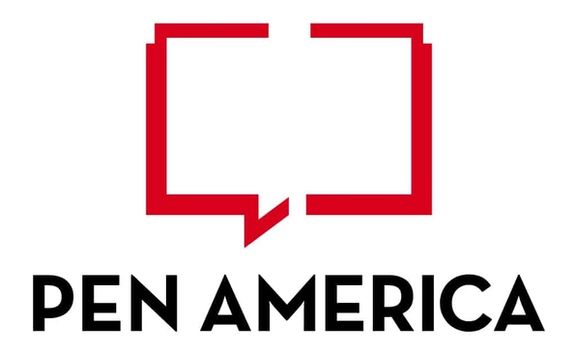
Pen America has condemned summoning Reza Khandan, the husband of a prominent Iranian human rights lawyer Nasrin Sotoudeh.
PEN America, founded in 1922 and headquartered in New York City, is a nonprofit organization that works to defend and celebrate free expression in the United States and worldwide through the advancement of literature and human rights.
Karin Deutsch Karlekar, director of PEN America’s Expression at Risk programs, released a statement Tuesday saying Khandan’s summoning is another attempt to intimidate and silence Sotoudeh.
“The summons recently issued to Reza Khandan, which will pull him away from his family and into Iran’s notorious and overcrowded prisons, is an outrage,” reads the statement.
“For more than a decade, his wife Nasrin Sotoudeh has been a leading voice of conscience in Iran, working, writing, and speaking out against injustice and in support of fundamental human rights and the rule of law,” added Karlekar.
Kalekar also called for a review and cancellation of Khandan’s sentence.
Khandan was summoned February 13by the judiciary to serve his prison term. He was sentenced to six years in jail in 2019, along with Farhad Meysami, a doctor and civil activist, but the implementation of his sentence was postponed.
He was summoned a few days after his wife's interview with the CNN about Iran's protests.
In this interview, Nasrin Sotoudeh emphasized that despite government repressions, the people of Iran still want a referendum and a regime change.
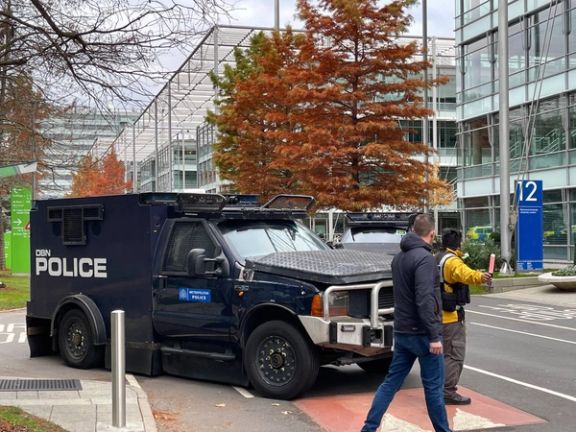
A man arrested in the vicinity of Iran International’s headquarters and charged with a terrorism offence pleaded not guilty in a court session on Tuesday.
Magomed-Husejn Dovtaev (Mohammad-Hussein Dovtaev), 30, an Austrian national, was detained at Chiswick Business Park on Saturday by officers from the Metropolitan Police Counter-Terrorism Command.
He appeared at Westminster Magistrates’ Court on Tuesday and pleaded not guilty, speaking via a German-Austrian interpreter. The first session on Monday was adjourned without the suspect saying anything because only a Russian interpreter was available at the court.
The suspect's name in Russian spelling signals that he is originally from one of the former Soviet republics, more likely from a Muslim-majority country. Dovtaev was bearded and wearing a grey sweatshirt and tracksuit bottoms.
He has confessed that he had never traveled to Britain before and he is now in London thanks to help from a friend named "Othman" whose contact was stored in his mobile phone as "B”. He said he knew Othman from his time in Chechnya. He admitted that he took pictures of the Iran International building but deleted them before his arrest. According to the indictment documents, he called two phone numbers, one Russian and the other Turkish.
Chief magistrate Paul Goldspring remanded Dovtaev in custody, to next appear at the Old Bailey on March 3. Michael Haggar was the prosecutor of the case and Seemsa Dosas was the defense attorney.
According to reports Dovtaev had in his possession several records containing information of a kind likely to be useful to a person committing or preparing an act of terrorism. These were seven videos depicting the outside of Building 11, Chiswick Business Park, as well as its security arrangements, contrary to section 58 (1) (b) of the Terrorism Act 2000.
Iran International was warned by authorities in November that its journalists were under threat from Iranian agents and the Metropolitan Police took measures to strengthen security around the network’s office in the area.
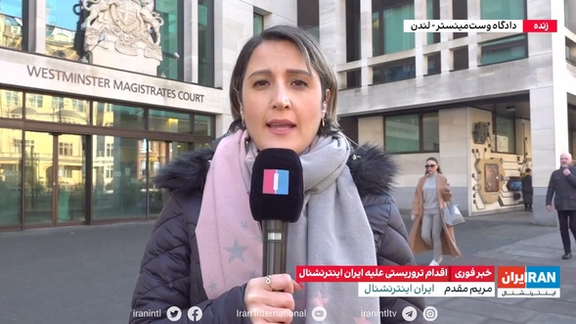
Amid repeated threats by the Islamic Republic against Iran International’s reporters, the UK government vowed in December to step up protection of London-based Iranian journalists.
British Foreign Minister James Cleverly said during a session at the parliament on December 13 that the Foreign and Commonwealth Development Office (FCDO), in partnership with the Home Office, had ensured that the Iranian journalists were protected by the British police.
“The UK remains absolutely determined to ensure that Iran does not intimidate people within this country. We will always stand up to the aggression from foreign nations,” he noted, adding, “We will absolutely not tolerate threats, particularly towards journalists who are highlighting what is going on in Iran, or indeed any other individual living in the UK.”
One day later, Iran’s Intelligence Minister Esmail Khatib in a television interview repeated threats to “punish all those” who had a role in popular protests against the regime, wherever they might be.
Khatib on November 9 had said the Islamic Republic regards Iran International as “a terrorist organization,” adding that its staff and anyone affiliated with the channel will be pursued by the Ministry of Intelligence all over the globe.
In November, Volant Media, the parent company of Iran International, said that two of its journalists had been notified of direct threats. It said in a statement the Metropolitan Police had formally notified both journalists that these threats represent an imminent, credible and significant risk to their lives and those of their families. Ken McCallum — the head of MI5, the UK’s domestic counter-intelligence and security agency -- said on November 16 that UK authorities have discovered at least 10 “potential threats” since January 2022 to “kidnap or even kill British or UK-based individuals perceived as enemies of the regime.”
Faced with nationwide antigovernment protests since mid-September, the Islamic Republic has blamed foreign-based Persian broadcasters such as BBC Persian and Iran International of “fomenting unrest”, while all media in the country are under tight government control and present protesters as “rioters” and “terrorists”.